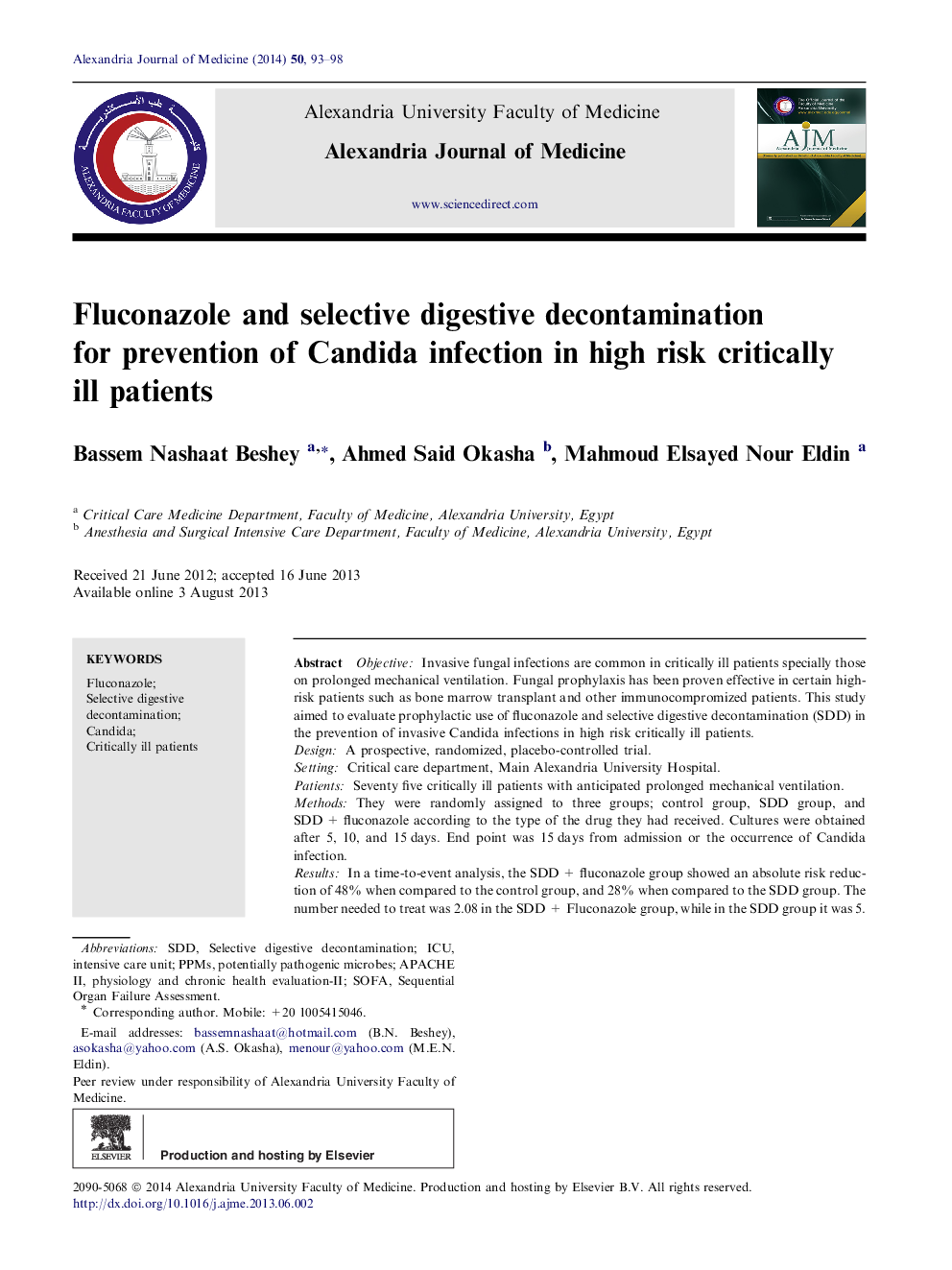| Article ID | Journal | Published Year | Pages | File Type |
|---|---|---|---|---|
| 3431773 | Alexandria Journal of Medicine | 2014 | 6 Pages |
ObjectiveInvasive fungal infections are common in critically ill patients specially those on prolonged mechanical ventilation. Fungal prophylaxis has been proven effective in certain high-risk patients such as bone marrow transplant and other immunocompromized patients. This study aimed to evaluate prophylactic use of fluconazole and selective digestive decontamination (SDD) in the prevention of invasive Candida infections in high risk critically ill patients.DesignA prospective, randomized, placebo-controlled trial.SettingCritical care department, Main Alexandria University Hospital.PatientsSeventy five critically ill patients with anticipated prolonged mechanical ventilation.MethodsThey were randomly assigned to three groups; control group, SDD group, and SDD + fluconazole according to the type of the drug they had received. Cultures were obtained after 5, 10, and 15 days. End point was 15 days from admission or the occurrence of Candida infection.ResultsIn a time-to-event analysis, the SDD + fluconazole group showed an absolute risk reduction of 48% when compared to the control group, and 28% when compared to the SDD group. The number needed to treat was 2.08 in the SDD + Fluconazole group, while in the SDD group it was 5.ConclusionSDD + fluconazole safely and effectively decreased the incidence of Candida infections in the high-risk, critically ill patients.
